Dipotassium glycyrrhizinate
- CAS NO.:68797-35-3
- Empirical Formula: C42H63KO16
- Molecular Weight: 863.05
- MDL number: MFCD00272274
- EINECS: 272-296-1
- SAFETY DATA SHEET (SDS)
- Update Date: 2024-12-18 14:15:30
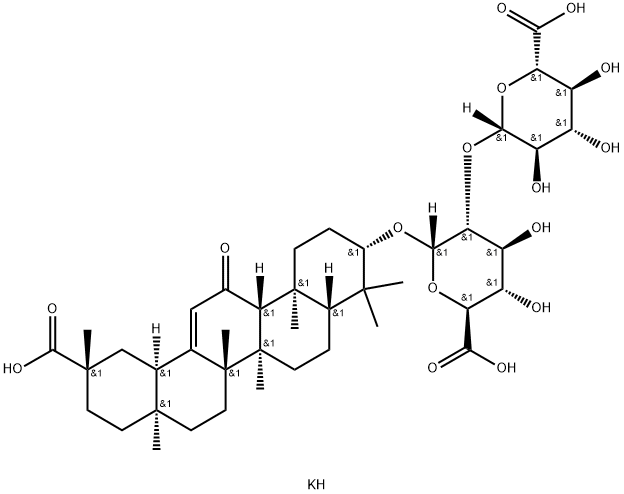
What is Dipotassium glycyrrhizinate?
Chemical properties
Dipotassium glycyrrhizinate (DPG), an active ingredient derived from the root of the leguminous plant licorice (Glycyrrhizauralensis Fisch.), is an off-white to light yellow powder that is odorless and has a distinct sweet taste that lasts for a long time. It is approximately 150 times sweeter than sucrose and is easily soluble in water, dilute ethanol, glycerin, and propylene glycol. It is slightly soluble in absolute ethanol and ether. DPG finds extensive utilization in medicine, food, beverage, and healthcare products.
The Uses of Dipotassium glycyrrhizinate
dipotassium glycyrrhizinate is a liquorice derivative that helps reduce skin redness and inflammation, thanks to its anti-irritant, calming, and soothing properties. It can be incorporated successfully into sensitive skin products, while also appearing to help improve oily skin.
The Uses of Dipotassium glycyrrhizinate
Dipotassium Glycyrrhizinate is used in improving the dissolution property of amphotericin B (AMB) and the bioavailability of the drug incorporated in suppositories.
What are the applications of Application
Dipotassium Glycyrrhizinate is a widely used anti-inflammatory agent
Definition
ChEBI: Glycyrrhizinate dipotassium is an organic molecular entity.
Benefits
Dipotassium glycyrrhizinate is a liquorice derivative that helps reduce skin redness and inflammation, thanks to its anti-irritant, calming, and soothing properties. Its sebum-regulating properties inhibit the excessive production of skin lipids by the sebaceous glands. It can be incorporated successfully into sensitive skin products, while also appearing to help improve oily skin. Dipotassium Glycyrrhizinate is suitable not only for hair and skin care but also for oral hygiene.
References
https://www.alexmo-cosmetics.de/Dipotassium-Glycyrrhizinate_1
https://www.paulaschoice.com/ingredient-dictionary/ingredient-dipotassium-glycyrrhizate.html
Effects of dipotassium glycyrrhizinate on wound healing doi: 10.1590/ACB360801
A re-analysis of studies regarding the use of Glycyrrhiza spp. in women during pregnancy doi:10.1016/j.hermed.2014.01.005
Properties of Dipotassium glycyrrhizinate
| Melting point: | >215oC (dec.) |
| Density | 1.277 at 20℃ |
| vapor pressure | 0Pa at 20℃ |
| storage temp. | Hygroscopic, -20°C Freezer, Under inert atmosphere |
| solubility | DMSO (Slightly, Heated), Methanol (Slightly), Water (Slightly) |
| form | Solid |
| color | White to Off-White |
| Stability: | Hygroscopic |
| CAS DataBase Reference | 68797-35-3(CAS DataBase Reference) |
| EPA Substance Registry System | .alpha.-D-Glucopyranosiduronic acid, (3.beta.,20.beta.)-20-carboxy-11-oxo-30-norolean-12-en-3-yl 2-O-.beta.-D-glucopyranuronosyl-, dipotassium salt (68797-35-3) |
Safety information for Dipotassium glycyrrhizinate
Computed Descriptors for Dipotassium glycyrrhizinate
| InChIKey | BIVBRWYINDPWKA-VLQRKCJKSA-L |
Dipotassium glycyrrhizinate manufacturer
Ralington Pharma
Alchem International Pvt Ltd
New Products
(S)-3-Aminobutanenitrile hydrochloride 4-Methylphenylacetic acid N-Boc-D-alaninol N-BOC-D/L-ALANINOL Tert-butyl bis(2-chloroethyl)carbamate N-octanoyl benzotriazole 3-Morpholino-1-(4-nitrophenyl)-5,6-dihydropyridin- 2(1H)-one Furan-2,5-Dicarboxylic Acid S-2-CHLORO PROPIONIC ACID ETHYL ISOCYANOACETATE 2-Bromo-1,3-Bis(Dimethylamino)Trimethinium Hexafluorophosphate 4-IODO BENZOIC ACID 3-NITRO-2-METHYL ANILINE 1-(2,4-DICHLOROPHENYL) ETHANAMINE (2-Hydroxyphenyl)acetonitrile 4-Bromopyrazole 5,6-Dimethoxyindanone 2-(Cyanocyclohexyl)acetic acid 4-methoxy-3,5-dinitropyridine 1-(4-(aminomethyl)benzyl)urea hydrochloride 2-aminopropyl benzoate hydrochloride diethyl 2-(2-((tertbutoxycarbonyl)amino) ethyl)malonate tert-butyl 4- (ureidomethyl)benzylcarbamate Ethyl-2-chloro((4-methoxyphenyl)hydrazono)acetateRelated products of tetrahydrofuran
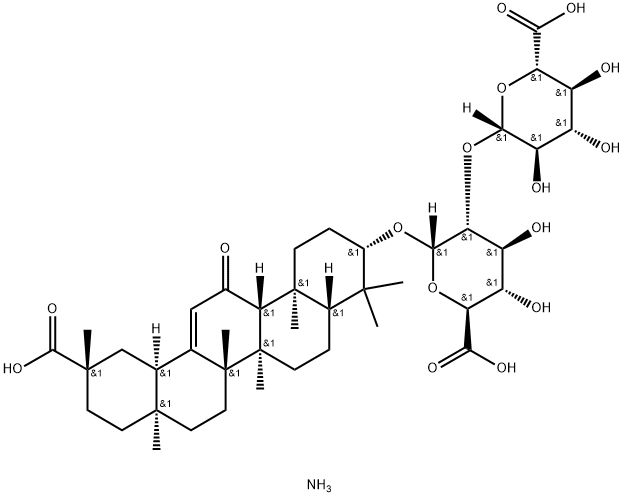
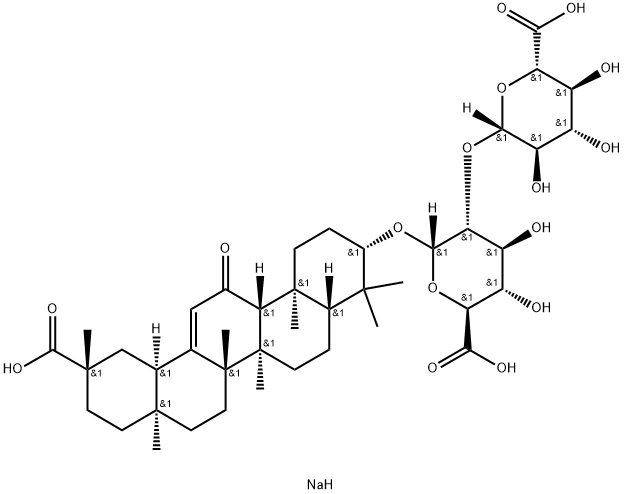
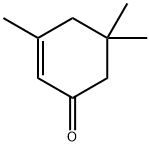

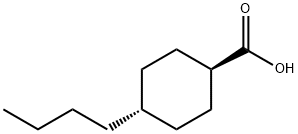
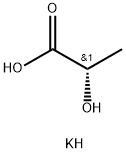
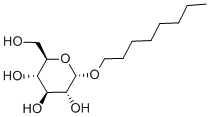
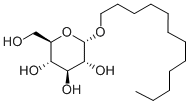
You may like
-
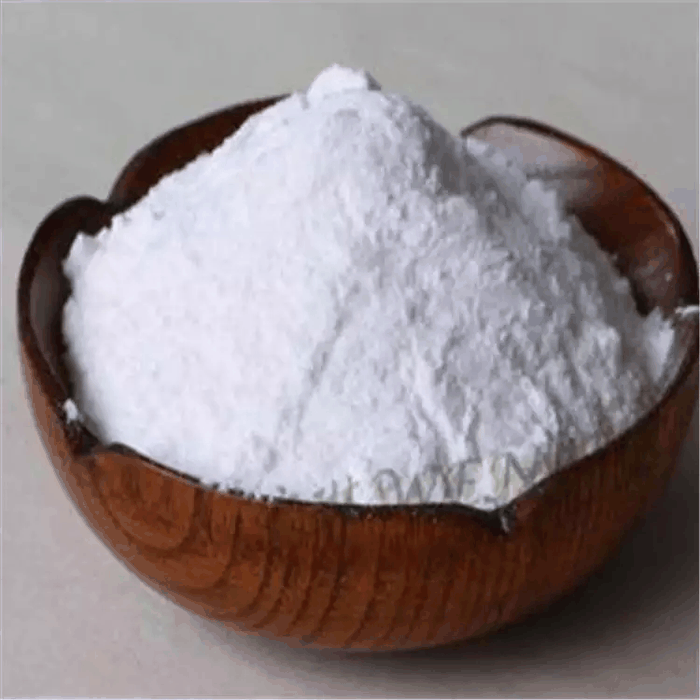 68797-35-3 Dipotassium glycyrrhizinate 98%View Details
68797-35-3 Dipotassium glycyrrhizinate 98%View Details
68797-35-3 -
 68797-35-3 Dipotassium glycyrrhizinate 98%View Details
68797-35-3 Dipotassium glycyrrhizinate 98%View Details
68797-35-3 -
 Dipotassium Glycyrrhizinate CAS 68797-35-3View Details
Dipotassium Glycyrrhizinate CAS 68797-35-3View Details
68797-35-3 -
 Dipotassium glycyrrhizinate hydrate 75% (HPLC) CAS 68797-35-3View Details
Dipotassium glycyrrhizinate hydrate 75% (HPLC) CAS 68797-35-3View Details
68797-35-3 -
 1975-50-4 98%View Details
1975-50-4 98%View Details
1975-50-4 -
 2-HYDROXY BENZYL ALCOHOL 98%View Details
2-HYDROXY BENZYL ALCOHOL 98%View Details
90-01-7 -
 14714-50-2 (2-Hydroxyphenyl)acetonitrile 98+View Details
14714-50-2 (2-Hydroxyphenyl)acetonitrile 98+View Details
14714-50-2 -
 118753-70-1 98+View Details
118753-70-1 98+View Details
118753-70-1